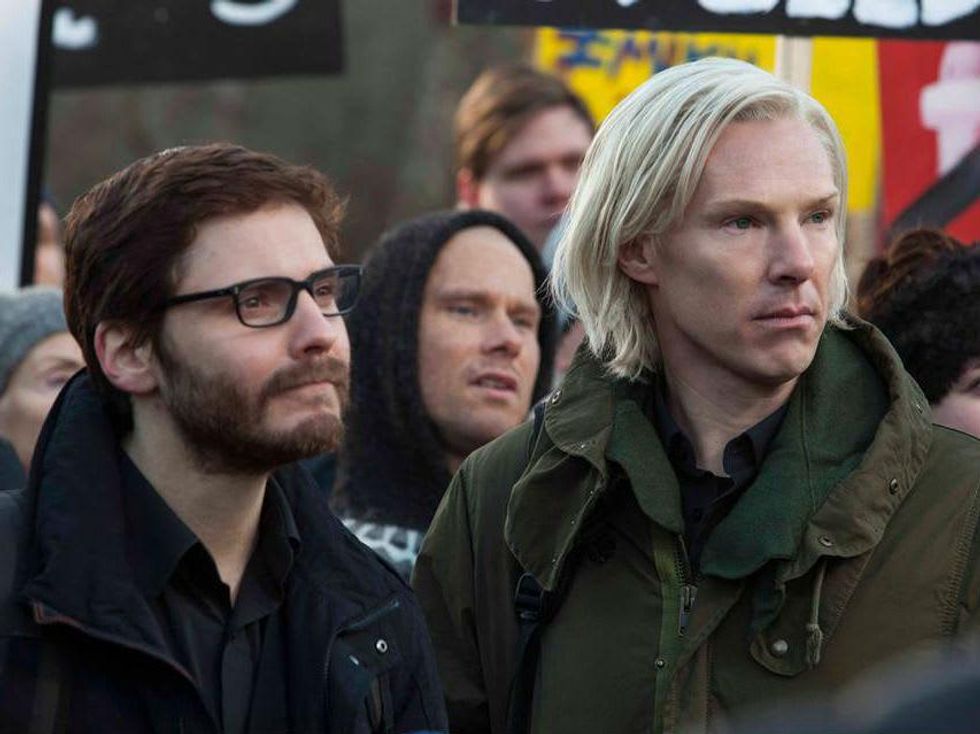This Does Not Compute
The Fifth Estate bores with techno-snore story behind WikiLeaks
When WikiLeaks founder Julian Assange first began his assaults on governments around the world by publishing documents detailing atrocities and other secrets, only the hardiest of souls could wade through the massive amount of material he put out there. The Fifth Estate, the new movie purporting to detail Assange’s rise to prominence, is only slightly less unwieldy.
Part of that is because, in the hands of director Bill Condon and first-time feature film writer Josh Singer, Assange (Benedict Cumberbatch) is little more than a ghost. The film is partially based on a book written by Daniel Domschelt-Berg (Daniel Bruhl) and is told mostly from his point of view.
WikiLeaks cannot be boiled down easily, but that’s something the filmmakers should have considered when deciding whether or not to make the movie.
Berg is portrayed as an Assange groupie of sorts, believing in Assange’s cause when few others would. Using Assange’s proprietary system that allows for anonymous submissions to WikiLeaks and Berg’s technical know-how, the two proceed to grow the site’s reputation little by little.
Each new whistleblower seems to inspire 10 others, and it isn’t long before the site grabs the attention of the biggest governments in the world, including the United States.
If you wanted to know exactly why Assange started the site or how he was able to start convincing people to share their secrets with him, you won’t find that information here. Precious few details are given about his background or motivations, and even when they are, they feel like they’re filtered through Berg’s viewpoint, leaving only whispers for the audience to grasp onto.
WikiLeaks garnered the notice of major media outlets around the world, and Assange eventually decided to partner with several newspapers on the site’s biggest revelations, like logs from the Iraq War. But the dealings with those papers are so complex that Condon and Singer get bogged down in the details, taking much of the drama out of the situations.
The film also shows U.S. government officials reacting to various leaks, but Condon stages their scenes so strangely that they feel like they’re from a completely different movie. The officials, played by Laura Linney and Stanley Tucci, have a witty repartee that’s at odds with other scenes. And in the context of the film, how the leaks affect their jobs or the government as a whole hardly seems to matter.
To be fair, the story of WikiLeaks cannot be boiled down easily, but that’s something the filmmakers should have considered when deciding whether or not to make the movie. A film like this cannot live purely on the strength of its characters, no matter how charming or eccentric.
That said, Cumberbatch does a fantastic job as Assange, making him impenetrable yet alluring. He floats in and out of scenes, commanding attention even when Assange isn’t the focus. He’s someone you want to know, but, frustratingly, you never get the chance.
Bruhl makes another solid impression following his role in Rush. Berg is essentially the film’s protagonist, giving it a moral compass when Assange threatens to take his zealotry too far. Bruhl does great work in bringing out the emotions in Berg that Assange seems to lack.
Despite the performances of Cumberbatch and Bruhl, The Fifth Estate is a slog. As a history lesson, it’s less than engaging, and when it tries to become a type of techno-thriller, it falls short. There are many lessons to be learned from WikiLeaks’ impact on how governments and media outlets are run, but don’t expect to learn them from this film.




